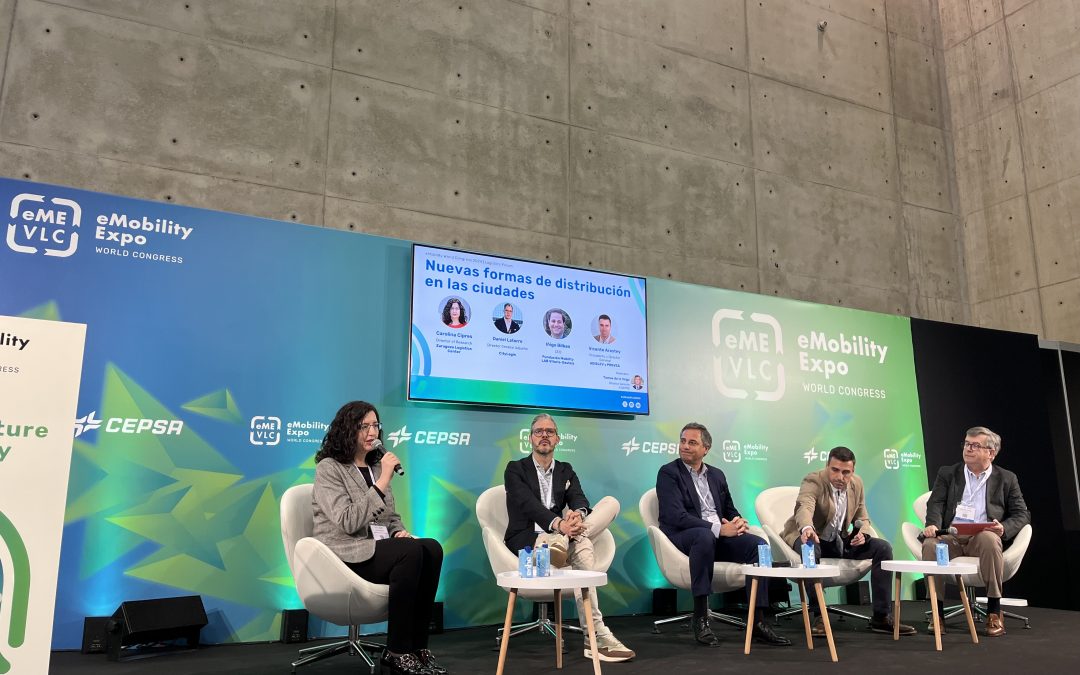-
Within the framework of the eMobility Expo World Congress, Tomás de la Vega, Managing Director at Logistop, moderated the round table New forms of distribution in cities, in which the great challenges facing cities were discussed: digitalisation, sustainability, retention and attraction of talent, standardisation,…
Vicente Arastey, president of ADISLEV and general director of PROVEA, emphasised that, on many occasions, only the urban distribution of small volumes of goods is considered, without taking into account the more voluminous and heavy goods, for which, to date, “there are still not enough features and autonomy for what we need from the HORECA sector”. Among the challenges ahead, he highlighted finding delivery drivers, making the sector environmentally and economically sustainable, and finding realistic solutions for the transport of bulky and heavy goods.
Iñigo Bilbao Ubillos, CEO, Fundación Mobility LAB Vitoria-Gasteiz, highlighted that the HORECA sector is one of the great challenges facing cities, especially with the implementation of low-emission zones. He also highlighted the role that #data will play, which will help decision-making both at institutional level (in terms of legislation) and at company level (in terms of optimising routes and operations), placing special emphasis on the importance of not confusing a database with what is a data space, in which the shared data has a series of conditions imposed by its owner.
Daniel Latorre, Assistant General Manager, CITYLogin, focused on the lack of knowledge on the part of the entities that are legislating, which, on occasions, do not know the specific characteristics and casuistry of the sector. “Within the institutions, there must be a real knowledge of what is happening within the supply chain, how operations are carried out and what consequences and effects these regulations will have,” he stressed. An important point has also been the need to raise awareness among the end consumer, as one of the main reasons for not buying is because shipping is not included. “We have created the perception that shipping is free and it is not, it always has an environmental and economic cost associated with it. Just like reverse logistics,” he added.
Carolina Ciprés, Director of Research, Zaragoza Logistics Center, highlighted the need for a willingness to share information and for systems to be able to interact with each other. “Digitalisation not only allows us to work, but sometimes it will prevent us from working. We can decarbonise by being more efficient, and to be more efficient we need to collaborate,” she said. Putting the focus on the social component of urban logistics, it must be borne in mind that part of Industry 5.0 is the just transition, taking into account future generations, as you cannot design a very sophisticated future roadmap if you are not making the profession attractive. “The social component is very important for urban logistics to become a reality”, he stressed. Finally, he highlighted the existing dissociation between “I am sustainable” and the real consumer behaviour of Generation Z because “nobody educates the consumer; we must inform them when they go to make a purchase of the associated pollution component. We need to invest in changing the culture and driving the growth of e-commerce by thinking about the consequences of the decisions that are made,” she concluded.

